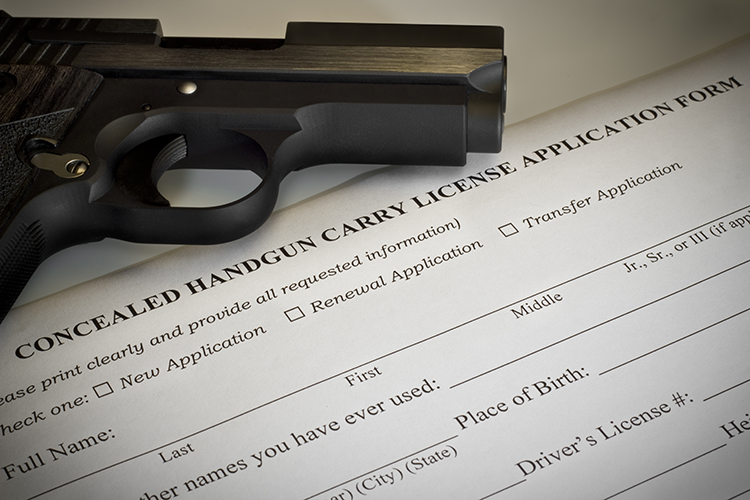5th Circuit looks to history and strikes down law banning gun possession by subjects of civil protective orders

Image from Shutterstock.
A federal appeals court has struck down a ban on gun possession by people subject to domestic-violence restraining orders, citing the historical approach required by the U.S. Supreme Court’s latest Second Amendment precedent.
In a Feb. 2 opinion, the 5th U.S. Circuit Court of Appeals at New Orleans vacated the conviction of Zackey Rahimi and struck down the law.
Rahimi was subject to a February 2020 civil protective order after an alleged assault of his ex-girlfriend. In December 2020 and January 2021, Rahimi was accused of several shootings. They included instances in which he allegedly shot at a driver and a car after a car crash. In another incident, he allegedly fired shots into the air after his friend’s credit card was declined at a Whataburger restaurant.
Police searched Rahimi’s home and found guns. He was charged under a federal law that bans possession of a firearm by anyone who is deemed by a judge to be a “credible threat” to an intimate partner or to that person’s child after notice and a court hearing.
A 5th Circuit panel originally upheld the law. But the panel withdrew its opinion and required supplemental briefing after the Supreme court decided New York State Rifle & Pistol Association v. Bruen in June 2022.
In Bruen, the Supreme Court rejected an approach that considers the government’s interest in gun regulation. Instead, the Supreme Court said, courts evaluating gun regulations should look to “the nation’s historical tradition of firearm regulation.”
Using the Bruen approach, the 5th Circuit struck down the federal law, holding that it is “an outlier that our ancestors would never have accepted.”
Judge Cory T. Wilson, an appointee of former President Donald Trump, wrote the panel opinion, which was joined by Judge Edith H. Jones and Judge James C. Ho.
In a concurrence, Ho distinguished the case from those that involve a criminal conviction.
“Our founders understood that those who commit or threaten violence against innocent law-abiding citizens may be arrested, convicted and incarcerated,” Ho wrote. “They knew that arrest and incarceration naturally entails the loss of a wide range of liberties—including the loss of access to arms.”
Hat tip to the Volokh Conspiracy and Reuters, which had coverage of the opinion.
See also:
ABAJournal.com: “Second Amendment protects right to carry a handgun outside the home, Supreme Court rules”
ABAJournal.com: “Supreme Court nears end of term amid conflict and discord”
Write a letter to the editor, share a story tip or update, or report an error.



